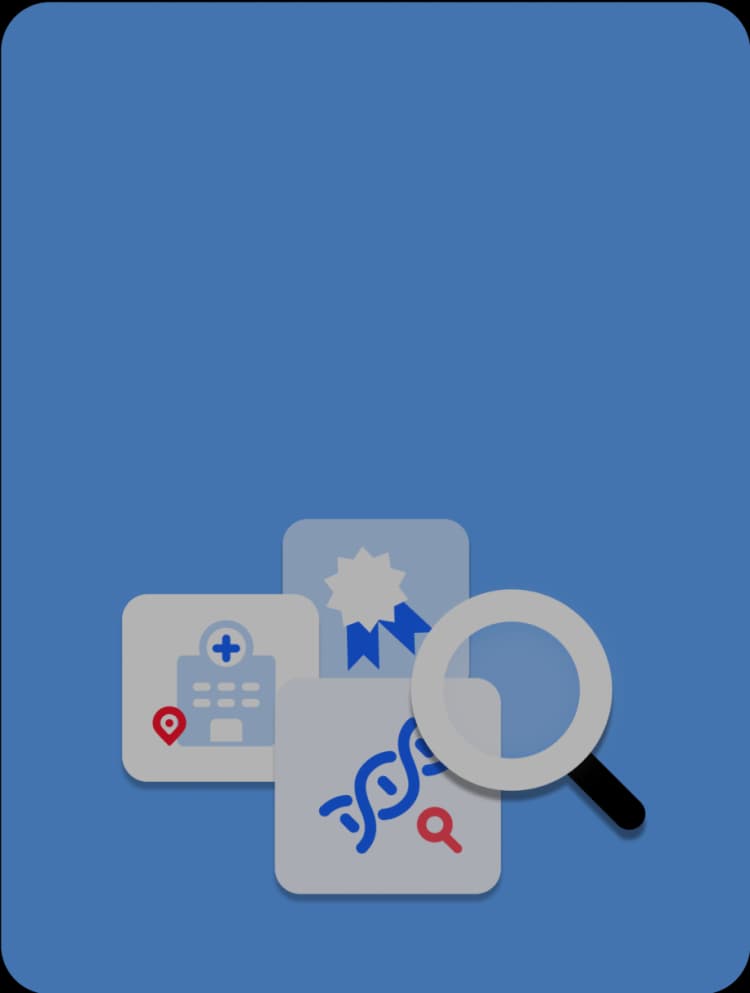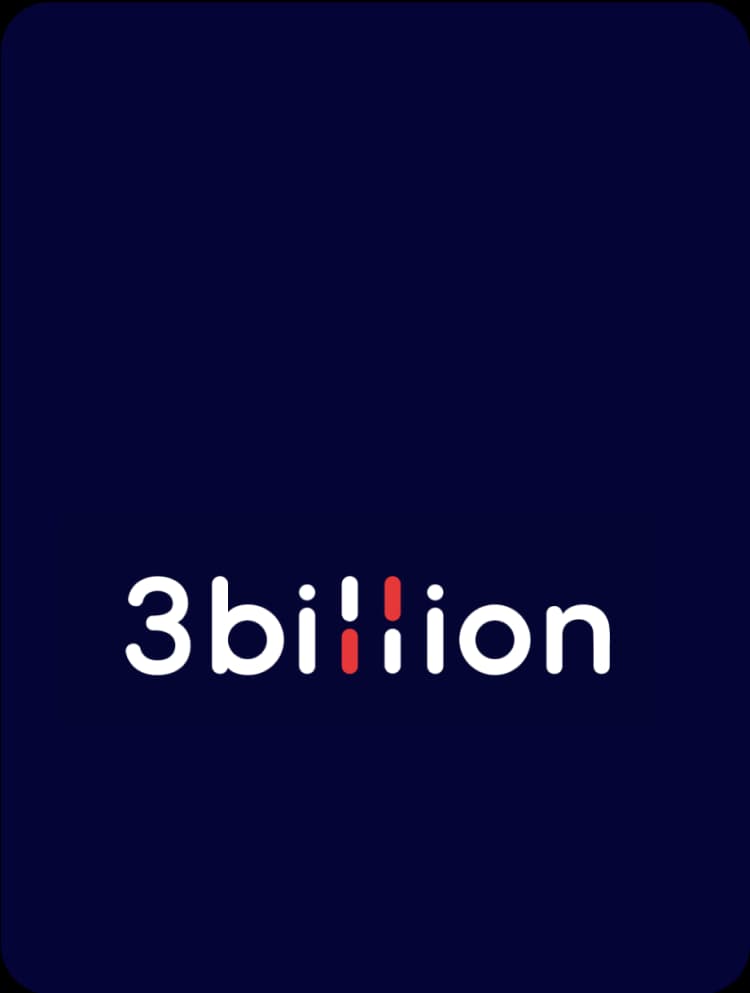How to choose proper Sequencing Company in 2023 (Exome/Genome)
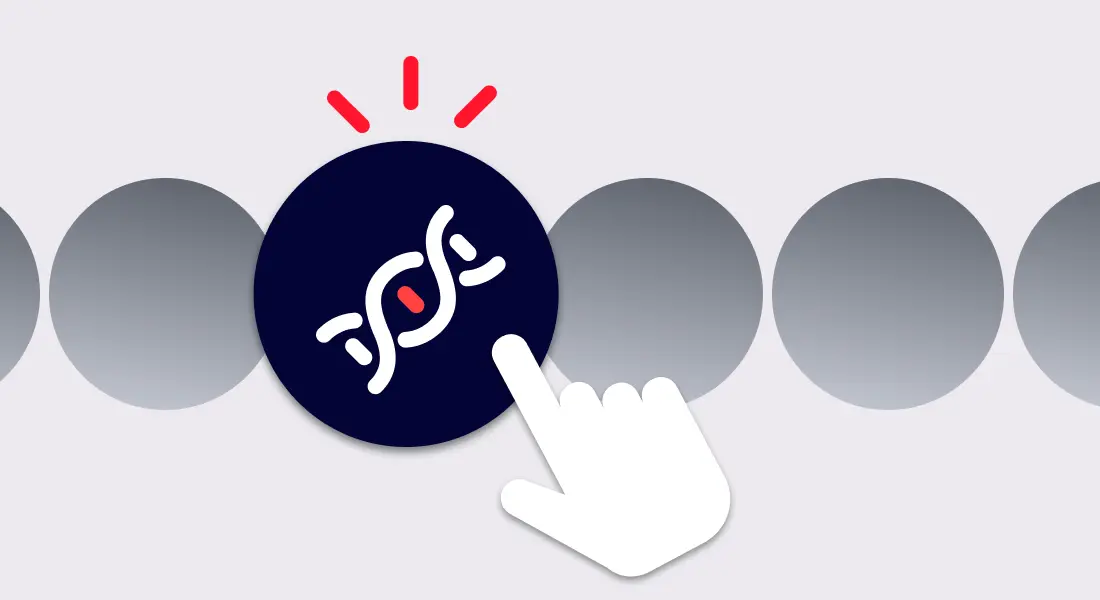
There are many genetic testing sequencing companies around the world that support clinical diagnostics in 2023. And each touting their sequencing quality, affordability, proximity and so on as the best option for healthcare providers.
However, the circumstances under which a healthcare provider needs a sequencing company are different. Moreover, even when sequencing using the same method and equipment, their is a huge difference in expertise, such as the technology of interpretation. Especially for exome and genome sequencing.
Because the sequencing results can dictate the way of treatment and, by extension, quality of life for a given patient, you need to choose your genetic testing company more carefully.

Today, let’s learn about the things you need to know to choose the most affordable genetic testing company to you.
Here are some important points to keep in mind:
1. Technology and expertise
Evaluate the sequencing technologies and platforms used by the company. Next-Generation sequencing (NGS) is the most common approach, but there may be variations in the specific methods and platforms that are used.
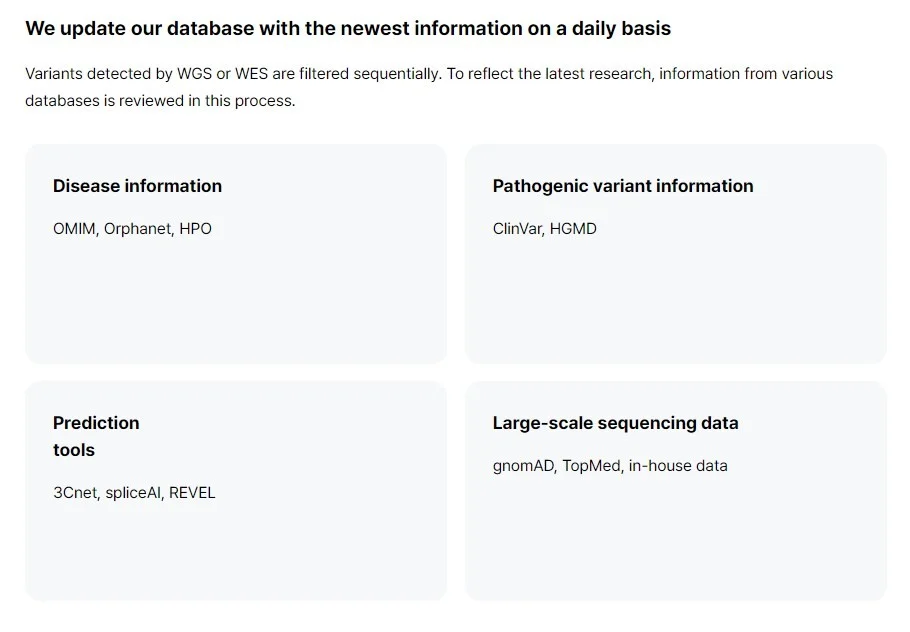
2. Quality and Accuracy
Evaluate the quality control measures in place at the company and the accuracy of their sequencing results. Look for certifications, such as CAP and CLIA, that demonstrate their commitment to quality standards. In addition, find out about their data analysis pipelines and how they ensure accurate and reliable sequencing data.
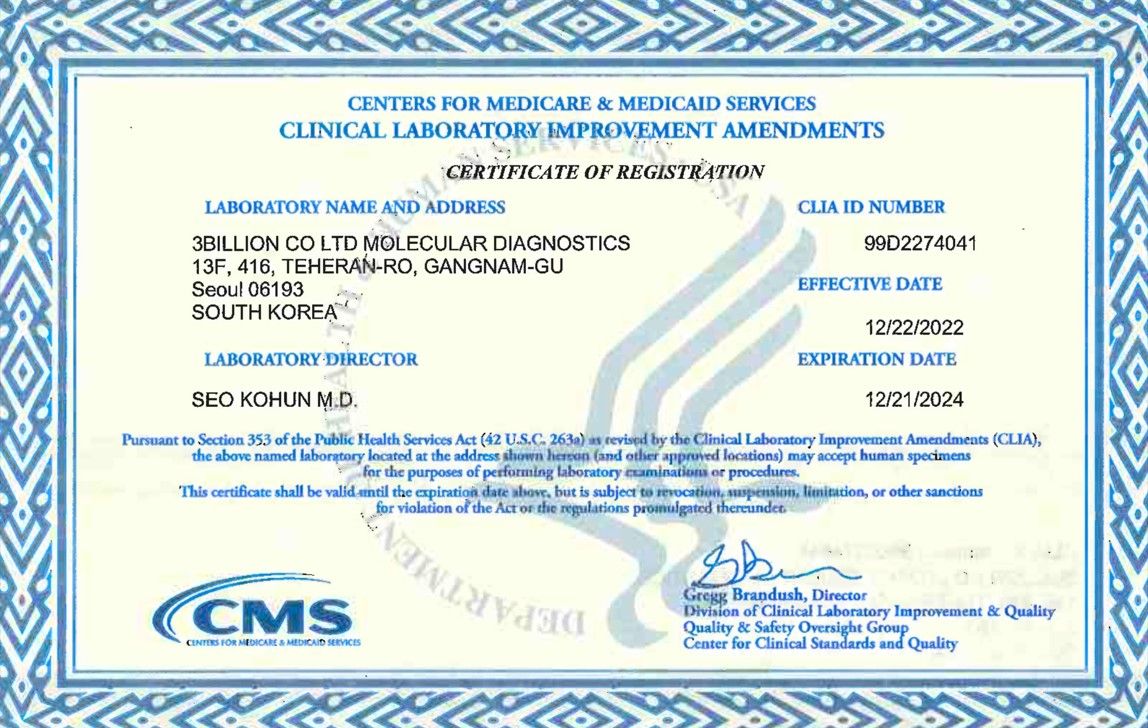
3. Turnaround Time (TAT)
Consider the turnaround time required for the sequencing project. Some companies may be able to offer a faster turnaround time than others, which can be important if you have a time-sensitive research or clinical need.
The pathogenicity of over 100,000 variants can be automatically interpreted per minute. (*for WES) Compared with the variant analysis data of ClinVar, the sensitivity of EVIDENCE, 3billion’s automatic variant interpretation system, was 98.4% and the specificity was 99.9%, proving EVIDENCE’s superior variant interpretation performance.

4. Scalability and Capacity
Assess the capacity of the company to handle your project size. If you have a large project or require high-throughput sequencing, make sure the company can accommodate your needs without compromising quality or TAT.
5. Data Security and Confidentiality
Data security and confidentiality are of critical importance, especially when dealing with sensitive genomic information. Ask about the company’s data handling process, storage protocols and compliance with relevant data protection regulations.
6. Cost and Pricing
Understand the company’s pricing structure and make sure it fits your budget. However, be careful not to choose a sequencing service based on cost alone. Quality and reliability should also be considered.
7. Customer Support and Collaboration
Assess the level of customer support and collaboration offered by the sequencing company. Do they provide guidance on experimental design, data analysis and interpretation? Throughout your sequencing project, clear communication channels and prompt customer support can be valuable.
8. Reputation and References
Research the company’s reputation and read reviews or testimonials from previous customers. Request the company for references and contact other researchers who have used their services for additional feedback could be helpful.
By taking these factors into consideration and conducting thorough research, you will be able to make an informed decision in the selection of a sequencing company that best suits your specific needs and goals.
If you are interested in the most comprehensive and high-quality genetic testing,
Get exclusive rare disease updates
from 3billion.

YoonJung Shin
Content Marketer


